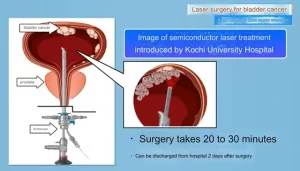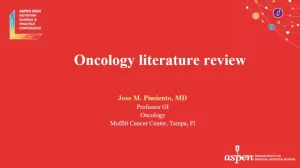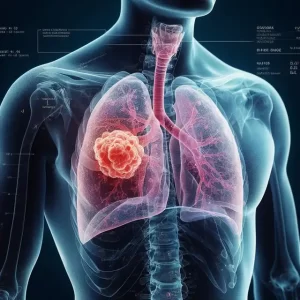What are risks of late-onset breast cancer in genetically susceptible women?
- EPA Announces First-Ever Regulation for “Forever Chemicals” in Drinking Water
- Kochi University pioneers outpatient bladder cancer treatment using semiconductor lasers
- ASPEN 2024: Nutritional Therapy Strategies for Cancer and Critically Ill Patients
- Which lung cancer patients can benefit from neoadjuvant immunotherapy?
- Heme Iron Absorption: Why Meat Matters for Women’s Iron Needs
- “Miracle Weight-loss Drug” Semaglutide Is Not Always Effective
What are risks of late-onset breast cancer in genetically susceptible women?
What are risks of late-onset breast cancer in genetically susceptible women? Women over 65 with cancer-susceptible pathogenic variants (PV) rarely benefit from genetic cancer testing. This population-based study examines whether women in this age group are eligible for clinical genetic testing and magnetic resonance imaging screening (≥20% lifetime breast cancer risk).
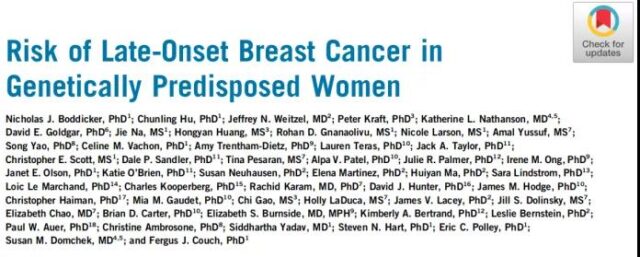
(Photo source: the official website of the magazine)
A total of 26,707 women over 65 (51.5% with breast cancer and 48.5% unaffected) from a population-based study were tested for the germline susceptibility gene PVs. The results showed that the frequency of PV in susceptibility genes was 3.18% among women with breast cancer and 1.48% among unaffected women over 65 years of age. Among women diagnosed with estrogen receptor (ER) negative, PV in BRCA1, BRCA2, and PALB2 accounted for 3.42%, ER-positive was 1.0%, and triple-negative breast cancer was 3.01%. In women without first-degree relatives with breast cancer, the frequency of PV is lower.
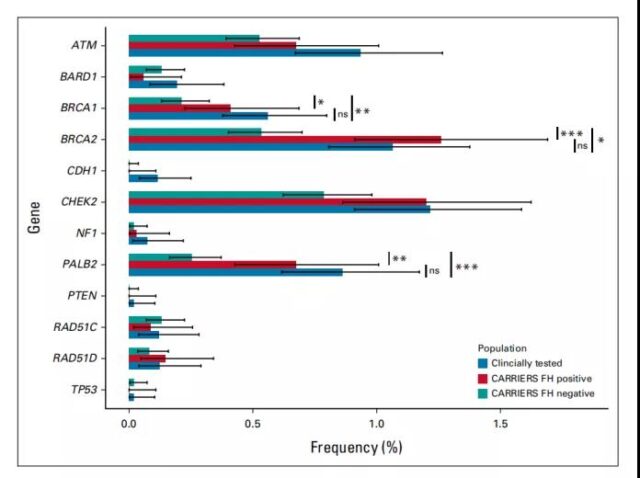
Women over 65 years of age diagnosed with estrogen receptor-negative breast cancer and women over 60 years of age diagnosed with triple-negative breast cancer have a >2.5% probability of PV in the high-risk BRCA1, BRCA2, and PALB2 genes. The PV carriers of BRCA1 and BRCA2 expect the remaining lifetime risk to be close to 20%, while the remaining risk of PALB2 and CHEK2 carriers is 15%.
This study shows that all women diagnosed with triple-negative breast cancer or ER-negative breast cancer should receive genetic testing, and women over 65 years of age who have PVs of BRCA1 and BRCA2 and possibly PVs of PALB2 and CHEK2 should be considered. MRI screening.
Boddicker NJ, Hu CL, Weitzel JN, et al. Risk of Late-Onset Breast Cancer in Genetically Predisposed Women. J Clin Oncol. 2021 Jul 22;JCO2100531. doi: 10.1200/JCO.21.00531.
Disclaimer of medicaltrend.org
Important Note: The information provided is for informational purposes only and should not be considered as medical advice.

